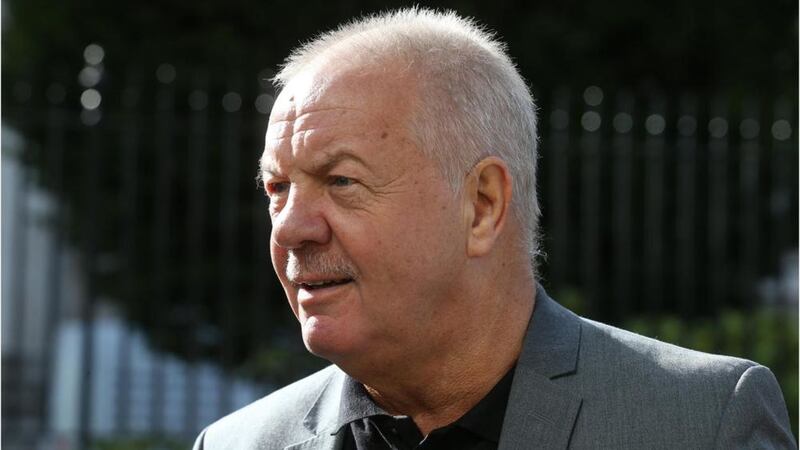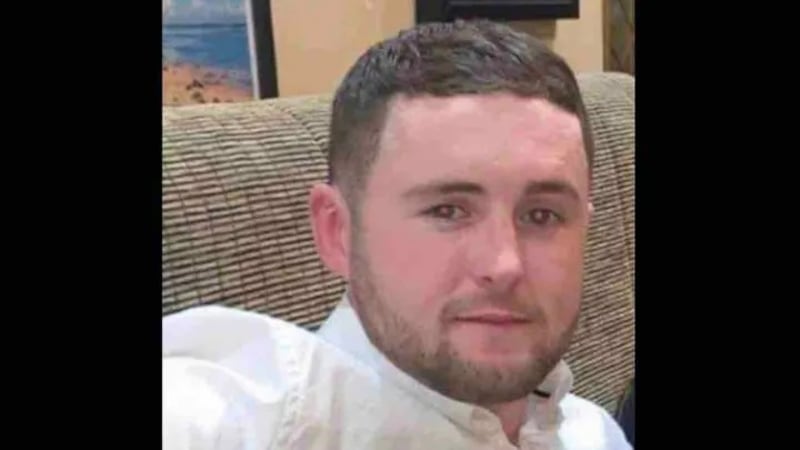A JUDGE in Belfast has vowed to give immediate consideration to landmark legal bids to halt the UK's planned departure from the European Union.
Mr Justice Maguire's pledge came as a three-day challenge to Brexit drew to a close at the High Court.
With similar litigation due to get underway in London, he is only being asked to rule on issues specific to Northern Ireland at this stage.
Victims campaigner Raymond McCord and a cross-party group of MLAs have mounted separate bids to have the process for quitting the EU declared unlawful.
Prime Minister Theresa May has announced she will trigger Article 50 of the Lisbon Treaty, the formal process for confirming the UK is to leave, by the end of March 2017.
But during the hearing it was contended that the move is illegal without first securing Parliamentary authorisation.
Even though the June 23 referendum backed Brexit, a 56 per cent majority of voters in Northern Ireland wanted to remain.
Mr McCord believes they have a legal right to resist being forced out.
His lawyers argue that the 1998 Good Friday Agreement has given the Northern Irish public sole sovereignty to decide on their future.
They also predicted Brexit would have a "catastrophic effect" on the peace process, causing constitutional upheaval amid renewed calls for a united Ireland.
Politicians including Alliance MLA David Ford, SDLP leader Colum Eastwood, Sinn Féin assembly member John O'Dowd and Steven Agnew of the Green Party are also seeking to judicially review the British Government's move towards quitting the EU.
The assembly members, whose case is backed by representatives of the voluntary and community sector in Northern Ireland, claim a Act of Parliament is required before Brexit can take place.
They further contend that the Stormont Assembly should be consulted and asked for its consent.
Referring to the impact on devolution, David Scoffield QC, in closing submissions, said: "This is not a case of a mere procedural defect.
"There's been a complete failure on the part of the Northern Ireland Office to undertake any analysis on the issue."
Counsel for the Secretary of State responded by insisting the government is legally entitled to use the royal prerogative to carry out the people's will to get out of the EU.
He described the power as "common currency" in making and withdrawing from international treaties - pointing out that it was also the method used to join the EU.
Rejecting claims that Parliament is being sidestepped in the process, the barrister said the legislative body will be involved in any law changes resulting from Brexit.
According to his case the 1998 Northern Ireland Act created no substantive legitimate expectation that its people will be consulted on before quitting the EU.
He also attempted to rubbish arguments that a withdrawal would damage the Good Friday Agreement by stressing the government remains committed to the peace process.
Stormont's chief law officer, Attorney General John Larkin QC, also took an opposing stance to the MLAs involved in the litigation.
Looking to a post-Brexit future, he argued that "not one word or phrase in the Belfast Agreement" would be affected.
Other grounds of challenge have been stayed due to their overlap with the proceedings at the High Court in London.
As the hearing in Belfast ended, Mr Justice Maguire said: "I will be giving my immediate consideration to the case.
"What I suspect is going to happen is that at some stage the court will reconvene to discuss the situation vis a vis the stay issues."
Outside court Mr McCord expressed delight with how the case had gone.
"I'm a lot more optimistic after listening to the legal arguments," he said.
"It's the wish of the people of Northern Ireland that we remain in the EU, something which most of the political parties in the Assembly, with the exception of the DUP, have recognised.
"Surely democracy must count for something in this country."








